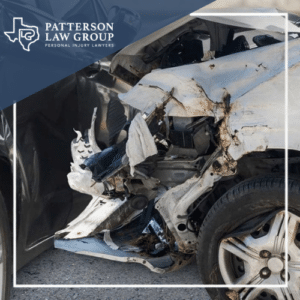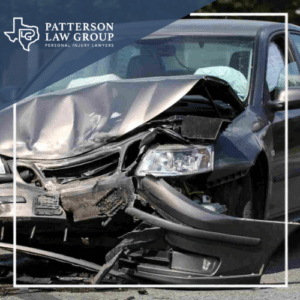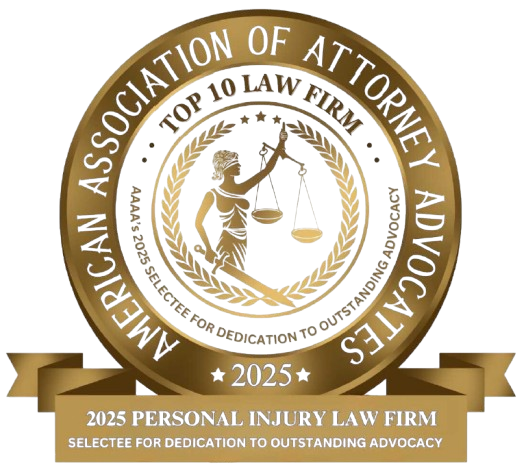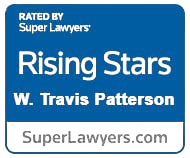In many ways, Uber and other rideshare companies have simplified how people travel. However, the rise of gig-based services has also complicated the personal injury process for those injured in an accident.
If you or a close family member have been injured in a rideshare accident, you may need the help of an Uber accident lawyer to see you through the claims process. You may be entitled to compensation. However, the legal relationship between Uber and its drivers and the technicalities of its insurance policies are often significant hurdles. The process can be challenging, but a car accident attorney at Patterson Law Group can help. Contact us today for a free consultation.
What Makes Uber Accidents Different
An Uber Accident–or any other type of ridesharing accident—usually occurs like any other auto accident. The main difference is in the relationship between the parties, which of them is liable, and how a victim may obtain compensation. If an Uber driver was at fault for your accident, they might be liable for damages. It may seem that Uber would likewise be responsible for its drivers, except for a critical difference: Uber drivers, generally, are independent contractors, not employees.
Since Uber drivers are generally not employees, that would leave them (and their personal insurance companies) responsible for accidents they cause. Unfortunately, personal insurance policies usually exclude coverage for any business use–unless the driver purchases separate coverage. To prevent the rider from being left without recourse due to the overlapping insurance exclusions, the Texas Legislature has enacted laws to protect victims.
Texas Uber Accident Laws
In 2016 and 2017, Texas passed legislation to regulate rideshare companies. This led to more consistent rules across the state and established rules for more streamlined insurance requirements that protect the riders.
The relevant statutes are Texas Occupations Code Chapter 2402 and Texas Insurance Code Chapter 1954. Some of the key provisions include:
- A requirement that rideshare companies obtain a state permit, which requires the rideshare companies obtain proof of insurance and a background check before giving rideshare drivers access to the app
- Annual fees paid by rideshare companies for administration costs
- Minimum liability insurance coverage requirements that must cover accidents both during a ride and between rides
- Transparency in fare calculation, which the companies must provide to passengers before the ride begins
Accident and Personal Injury Scenarios Involving Uber and Lyft

- Sometimes, a passenger in an Uber or Lyft is struck by another driver.
- Often, passengers in Uber or Lyft vehicles are in accidents because their own driver hit another car.
- Pedestrians may be hit by Uber or Lyft drivers.
Like any driver on the road, Uber and Lyft drivers must be held responsible for driving safely. This means they’re subject to the same standards and can be liable to other drivers, their passengers, and even pedestrians. If you’ve been in an accident with an Uber or Lyft car, you should first call authorities and medical help if needed. Then, it’s wise to document everything pertaining to the crash and call a lawyer. If the Uber or Lyft driver doesn’t cooperate with providing the proper insurance paperwork, things can get complicated and you need someone experienced with this type of scenario to get you through what is to follow.
Rideshare Insurance for Uber Drivers in Texas
Texas state law requires that liability insurance be available to pay the claims of riders, pedestrians, or anyone else injured by the Uber driver’s negligence. The minimum required insurance coverage varies and is determined by what the driver was doing at the time of the accident. This is referred to as “periods” based on the status of the driver’s rideshare app. Per State law, Uber and its drivers must carry the following minimum protection:
Period 0 – Rideshare app is off – The driver’s personal insurance applies:
- Bodily Injury: $30,000 per person/$60,000 per accident
- Property Damage: $25,000
Period 1 – Rideshare app is on, and the driver is waiting for a ride request – Uber’s insurance provides coverage:
- Bodily Injury: $50,000 per person/$100,000 per accident
- Property Damage: $25,000
Periods 2– Rideshare app is on – Driver has accepted a prearranged ride and is driving to pick up a rider or has a rider in the vehicle – Uber’s insurance provides coverage:
- $1,000,000 coverage for bodily injury and property damage per accident
Knowing that rideshare companies and their drivers are insured should bring some relief. However, it does not mean the insurance companies will pay the claims without a fight. If both the driver’s and Uber’s policies potentially cover an accident, they may each claim to be secondary (only liable after any other insurance is exhausted). It can be the injured party who loses out in these fights but having a rideshare accident lawyer ensures your interests are represented.
Who is liable for Rideshare Accidents?
Texas rideshare auto policies are liability policies–they pay when the insured party is at fault. Sometimes the Uber driver did not cause the accident. In that case, the injured person needs to pursue compensation from whoever was to blame. Potentially liable parties can include:
- Other drivers (and possibly their employers)
- Pedestrians or bicyclists
- Municipalities or companies with whom they contract for road repair
- Bus companies
- Manufacturers of faulty products
Regardless of whether your rideshare accident claim is handled as an insurance claim or a lawsuit–to win compensation, you need to be able to prove fault. This means gathering and presenting evidence that the defendant breached a legal duty by violating a traffic law and that the breach caused your injuries and related losses.
This can be a lot to tackle when your life has been turned upside down by an accident. However, putting your trust in an experienced Uber accident attorney can alleviate much of the burden.
Common Causes and Effects of Uber Accidents

- Confusion – An Uber driver must navigate to a destination of the rider’s choosing, often in an unfamiliar location.
- Distraction – Using a cell phone while driving is notoriously dangerous. But rideshare drivers rely on their phone applications to do their job, often with the added distraction of conversing with their riders.
- Speeding – Ridesharing may unintentionally reward speeding; the sooner a driver can deliver a rider to a destination, the sooner they can pick up the next job.
- Exhaustion – Many Uber drivers work long hours, and trips tend to be more plentiful in the evenings or early mornings, adding to driver fatigue.
If an Uber driver’s actions lead to a crash, there are potentially three types of accidents. The crash may injure the passenger of the Uber vehicle, the occupant of another vehicle, or someone outside the vehicle like a bicyclist or a pedestrian.
Common personal injuries in Uber and Lyft accidents include:
- Fractures or broken bones
- Head injuries
- Back and spinal cord injuries
- Internal organ damage
- Sprains and strains
- Lacerations and bruises
Finally, after an accident, do not wait to see a doctor. Early treatment can improve your likelihood of recovery and help validate your claim.
What Compensation is Available for an Uber Accident Injury?
Texas law recognizes the right of accident victims to be “made whole” or in the same financial position–had the accident not occurred. Realistically, money cannot turn back the clock, but it can compensate for:
- Past and future medical bills and expenses
- Property damage
- Past and future loss of earning capacity/lost wages
- Past and future pain and suffering
- Past and future physical impairment
- Past and future mental anguish
- Past and future disfigurement
- Loss of consortium
To recover these and other damages, you will need to provide evidence of your car accident injuries. Some evidence, like medical bills, can be easy to gather. Other evidence, like expert witness reports, is more complicated to obtain. However, these are everyday matters for an Uber car accident attorney or a Lyft car accident lawyer.
What To Do After a Rideshare Accident
- Move out of traffic. Clear out of the road.
- Call 9-1-1. Report the accident. Assess whether anyone is seriously hurt and, if so, inform the operator.
- Exchange information. Get the names, addresses, phone numbers, license plate numbers, and insurance information from others involved in the accident and contact information of witnesses. Take photos of the vehicles and location if you can.
- Seek medical treatment. Even if you think you are not seriously injured—adrenaline floods the body after an accident and masks pain.
- Speak with a rideshare lawyer. One of the biggest mistakes you can make is to speak with an insurance claims adjuster before speaking with an Uber injury lawyer. Adjusters may try to twist your words in ways that can damage your claim.
An experienced lawyer helps protect you from insurance adjusters. They also know how to maneuver through complex liability and insurance issues, obtain necessary evidence, and formulate a strategy to get the full compensation you deserve.
How To Pursue an Uber Accident Claim
In Texas, car accident victims generally have two years to file a lawsuit, but it’s smart to put the insurance companies on notice well before this deadline. The most efficient way to resolve a car accident is to present a claim to the at-fault driver’s insurance company and to Uber through its website. Your lawyer may prepare a package of information that explains and documents your settlement demand. If you and the company cannot agree on a settlement, you may need to file a lawsuit.
Speak with a Uber Lawyer at Patterson Law Group
If you were injured in a rideshare accident in Texas, someone at Patterson Law Group is waiting to hear from you. Our team is efficient and accessible. We are ready to fight for you because we know that an injury doesn’t have to be catastrophic to upend your life. Contact us today to schedule a free consultation with a Fort Worth personal injury lawyer.
Resources:
-
- Texas.gov, Occupations Code Chapter 2402 – relating to the regulation of transportation network companies; requiring an occupational permit; authorizing a fee: Click here to learn more
- Texas.gov, Insurance Code Chapter 1954 – setting insurance requirements for transportation network companies: Click here to learn more
-
- Uber, Auto insurance to help protect you: Click here to learn more









